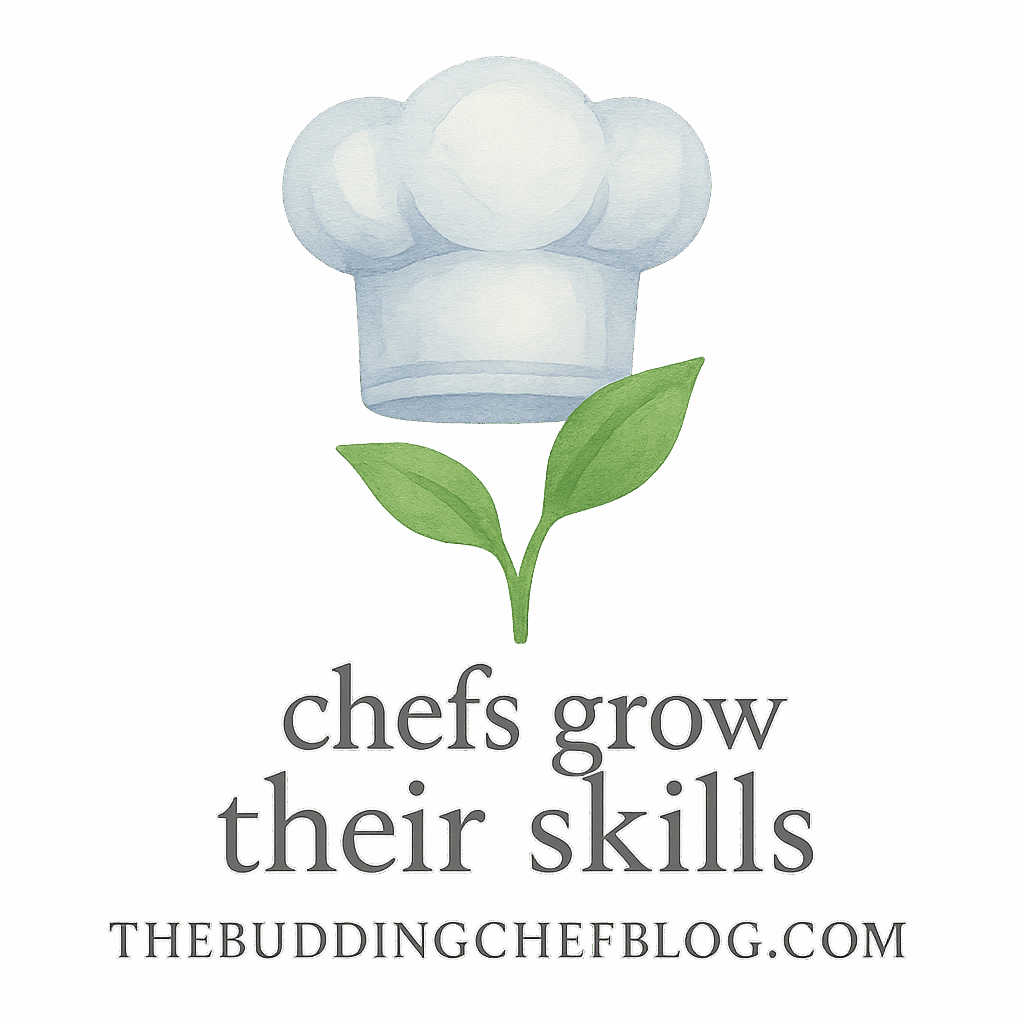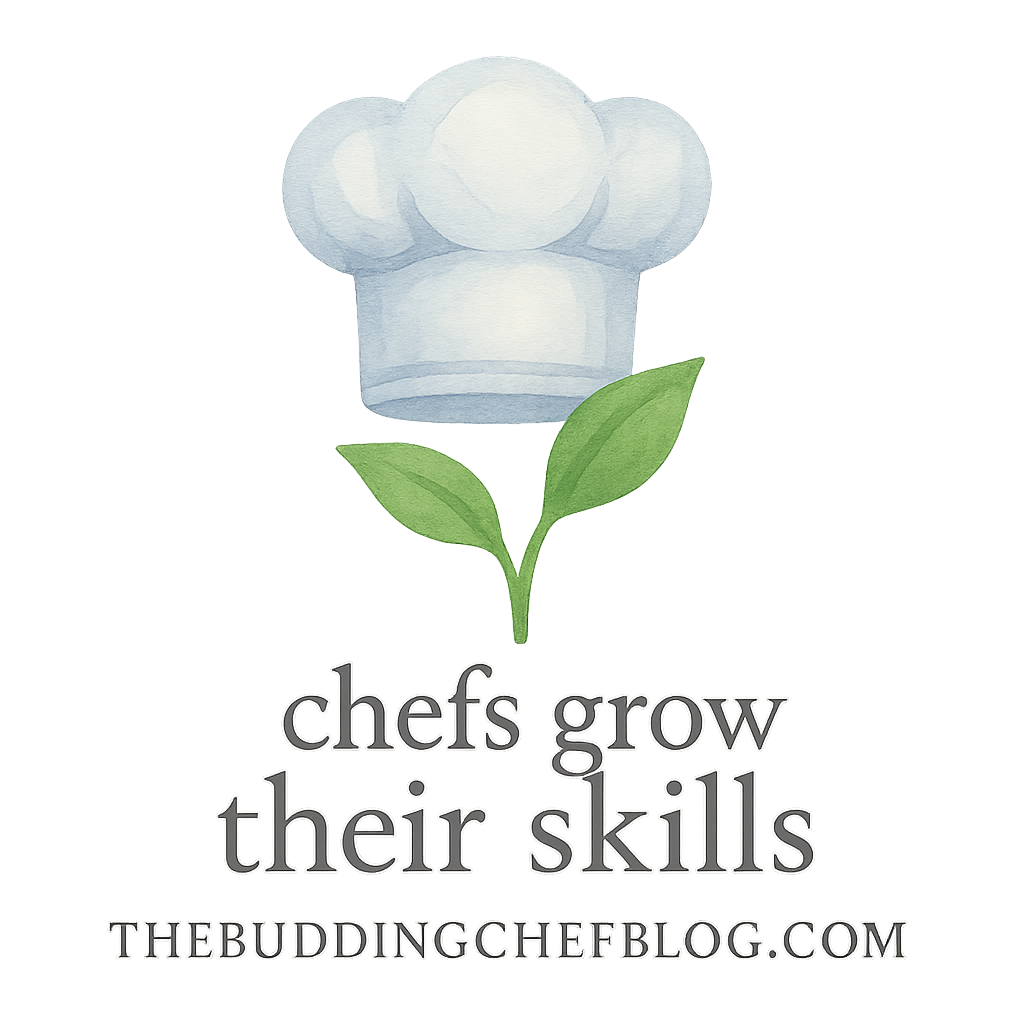Have you ever watched a professional chef glide across the kitchen with absolute confidence and thought, “How do they make it look so easy?” Spoiler alert: it isn’t magic—it’s a carefully built skillset. If you’re a beginner chef looking to level up, mastering a few key areas can make all the difference.
Let’s dive into the 10 essential skills beginner chefs need to grow into professionals. Whether you’re cooking for fun or planning to build a culinary career, this guide will help set you on the right path.
Why Building Culinary Skills Is Essential
Skill-building isn’t just about showing off your knife work on Instagram. It’s about efficiency, creativity, consistency, and confidence in the kitchen. These traits set pros apart—and they’re totally within your reach.
Ready to grow? Let’s get cooking.
1. Mastering Basic Cooking Techniques
Knife Skills – Slice Like a Pro
Before you sauté your first onion, you need to know how to dice it safely. Proper knife skills are the foundation of any chef’s toolkit. Learn the difference between julienne, dice, mince, and chop—your fingers (and your food’s presentation) will thank you.
Sauteing, Boiling, and Roasting Basics
Boiling an egg or perfectly roasting vegetables might seem simple, but each method requires attention to timing and technique. Practice makes perfect.
Resource: Check out our Basic Cooking Techniques guide for beginner-friendly tutorials.
2. Understanding Ingredients Inside Out
Knowing Your Produce, Proteins, and Pantry
Fresh basil or dried? Chicken breast or thigh? A pro knows how ingredients behave and what substitutions work best.
Flavor Profiles and Ingredient Pairing
Learn to match herbs with proteins, balance sweet and savory, and recognize complementary flavors.
Resource: Explore our Ingredient Knowledge hub to level up your flavor game.
3. Getting Comfortable with Kitchen Tools
Choosing the Right Cookware
Using the wrong pan can ruin your dish. Non-stick, stainless steel, cast iron—they each serve a purpose. Understand your equipment.
Maintaining and Using Tools Efficiently
Sharpen your knives, clean your pans properly, and store tools where you can grab them fast.
Resource: Browse our guide to Kitchen Tools & Equipment.

4. Perfecting Time Management in the Kitchen
Prioritizing Tasks Under Pressure
Cooking a full meal with hot pans, simmering pots, and timers going off? It’s a juggling act.
Mise en Place: Your Best Friend
Prepping everything beforehand—called “mise en place”—is the secret behind smooth, stress-free cooking.
5. Developing a Sense of Taste and Seasoning
Tasting as You Cook
Don’t wait until the end to taste—season along the way. This allows you to adjust flavors and avoid bland outcomes.
Balancing Salt, Fat, Acid, and Heat
This isn’t just the name of a famous cookbook. These elements are the holy grail of flavor.
6. Embracing Meal Planning and Budgeting
Planning Recipes for Cost-Effective Cooking
As a beginner, it’s easy to overspend. Professionals plan with purpose.
Shopping Smart and Reducing Waste
Know your staples, plan meals for the week, and love your leftovers.
Resource: Explore our Affordable, Budget, and Meal Planning tips for savvy kitchen management.
7. Practicing Recipes Regularly
Repetition Builds Intuition
The more you repeat a recipe, the more natural it feels. Don’t just cook once and move on—revisit dishes until they become second nature.
Tracking Your Progress in a Cooking Journal
Write down what worked, what didn’t, and what you’d change next time. Your future self will thank you.
Resource: Dive into Recipe Practice for ideas and techniques.
8. Learning from Mistakes and Challenges
Every Burnt Dish is a Lesson
Mess up a sauce? Undercooked your chicken? We’ve all been there. Mistakes are how you grow.
How to Handle Kitchen Setbacks Like a Pro
Stay calm, pivot, and improvise. Chefs aren’t flawless—they’re flexible.
Resource: Visit our Mistakes and Challenges sections for real stories and solutions.
9. Building Professional Habits and Discipline
Clean as You Go
A messy kitchen leads to chaos. A tidy station? That’s the sign of a rising pro.
Respecting Time and Structure in the Kitchen
Arrive on time, stay focused, and be respectful of others in a shared kitchen space.
Resource: Grow your skills with our Habits and Improvement Chefs content.
10. Continuing Professional Growth
Feedback, Mentorship, and Courses
Take every critique as a stepping stone. Ask for help, enroll in online classes, and always stay curious.
Staying Curious and Evolving Constantly
Follow food blogs, watch culinary shows, and try cuisines from around the world. Learning never stops.
Resource: Explore our Professional Growth section for your next step.
Final Thoughts: Your Journey from Home Cook to Chef
Rome wasn’t built in a day—and neither is a chef. Start small, stay consistent, and celebrate your growth. These ten skills aren’t just about technique—they’re about mindset. Whether you dream of running a restaurant or just want to cook a killer risotto, your path to becoming a professional chef starts right in your kitchen.
Explore more helpful tips and expert guides at The Budding Chef Blog—your trusted partner on the culinary journey.
FAQs
1. What’s the most important skill for beginner chefs?
Mastering the basics like knife skills and cooking techniques lays the groundwork for everything else.
2. How often should I practice recipes?
Aim to cook several times a week, and revisit recipes until you feel confident and consistent.
3. Do I need expensive tools to be a great chef?
Nope. Start with quality essentials. Explore cookware tips on a budget.
4. How do I stop making the same cooking mistakes?
Keep a journal, analyze what went wrong, and check out our mistakes guide.
5. How can I manage time better in the kitchen?
Start with mise en place—prepping everything ahead. It’s a total game-changer.
6. Should I attend culinary school to go pro?
Not necessarily. Many pros are self-taught with dedication and practice. See our professional section for more.
7. Where can I find beginner-friendly recipes to try?
Head over to our beginner and practice tags to get started.


